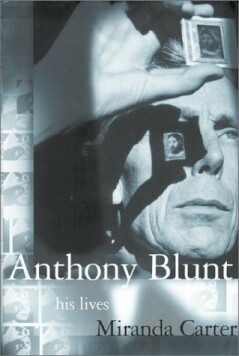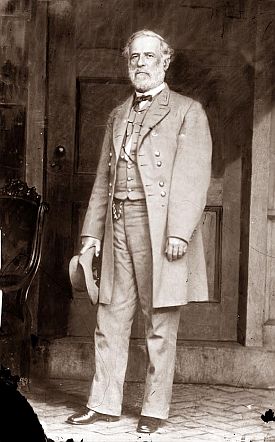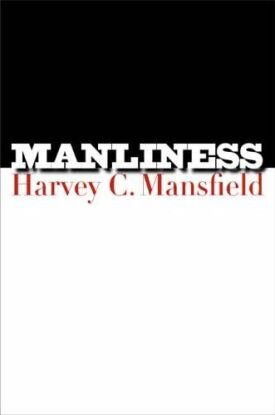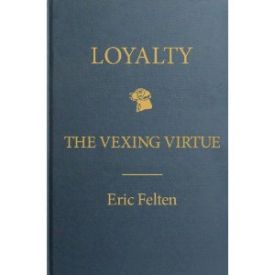Honor: An Interview with Jamie Glazov
Frontpage Interview’s guest today is James Bowman, the author of the new book: Honor: A History.
FP: James Bowman, welcome to Frontpage Interview.
Bowman: Thank you.
FP: What motivated you to write a book about honor?
Bowman: It’s something I’ve been thinking about ever since Vietnam. Like a lot of young men eligible for the draft at the time, I felt that serving my country in Vietnam was the last thing I would have wanted to do, so that when I flunked my draft physical I was overjoyed. But I noticed that the doctor who told me I was unfit, who must have seen a fair number of guys like me, still expected me to be disappointed at the news. This seemed so bizarre to me that it lodged in my mind as a kind of moral puzzle or conundrum. Well, what was puzzling me was the idea of honor, though I didn’t realize it at the time. But over the years I kept coming back to the subject, which kept cropping up in all kinds of unexpected ways, and wanting to know more about it. Thirty-five years later, that grain of sand in the oyster has produced what I hope is the pearl of Honor: A History.
FP: Define “honor” for us.
Bowman: At its most basic, honor is the good opinion of the people who matter to us. The people who matter, those whom we regard as our peers and whose right to judge us we implicitly recognize, I call the honor group. We are all part of various honor groups: our families, our classmates when we are in school, our workmates or professional colleagues, and different kind of behavior are approved of or disapproved of by each of them.
But there are some constants. In particular, it is still possible to lose the esteem of most honor groups by cowardice or wimpishness if you are a man, or by immodesty or promiscuous behavior if you are a woman.
We have tried to change this in recent years, proclaiming the rights and even the duties of men to cry and confess their weaknesses and of women to be as sexually adventurous as men, but I think that most people would agree there remains a residual tendency of people to look down on those who do.
This is what I call in the book “reflexive” honor: the almost instinctive tendency to admire some kinds of behavior and despise others, and it never goes away. But there is, or was, also what I call “cultural” honor, which gives us a set of stories and a vocabulary with which to teach young people what a society-wide honor group expects of them as men, or women. It’s that cultural honor which died out in the 20th century.
FP: So expand on why the sense of honor has died in our society.
Bowman: In the West, but especially in the Anglo-Saxon countries, there has long been a strong anti-honor tradition. Think of Falstaff’s famous soliloquy asking “What is honor?” and answering: “A word.”
The Westen honor culture was on the ropes by the late 18th century when it was re-invented by the American Founding Fathers and some key European romantics, especially Sir Walter Scott. For the first time, honor was seen as being not the property of some hereditary elite but something that everyone could aspire to. Honor was even reconciled with Christianity, which had always in the past regarded it with suspicion or outright hostility. Well, it was an unstable mixture. In the aftermath of the First World War there was a powerful reaction against it — partly because people saw national honor, with some justification, as having caused the war and partly because ideas of chivalry and heroism seemed absurd in the trenches, among “those who die as cattle,” as Wilfred Owen put it.
You also have to notice the importance, at the same time, of the new and revolutionary ideas associated with feminism and psychotherapy, both of which undermined traditional notions of honor. Cultural honor began to go downhill at that point, in the 1920s, and it finally dropped off a cliff with the debacle in Vietnam. Since then, we have been living in a post-honor society, though one with occasional nostalgic episodes for the old ways.
FP: Tell us about how gender fits into the concept of honor, and how gender roles in the West and their fluctuation have been interconnected with the changing role of honor.
Bowman: We have no record of an honor culture that treats men and women equally, which is one reason why those who are committed to women’s equality are invariably anti-honor and anti-chivalry. As I say, we haven’t quite managed to do away with that double standard. It is still fighting words to call a man a wimp or a woman a slut, but not the other way around. But there are also signs that the feminist and other anti-honor forces have had an impact. Assertiveness and toughness in women are now more prized qualities than yielding softness and compliance; sensitivity and a willingness to share feelings are more prized in men than they were, though it is not yet clear how far this process can go.
FP: Tell us about honor and what it reveals about the main difference between the West and radical Islam.
Bowman: My book is called Honor: A History, because it is only in the West that honor has a history. In Islamic lands and elsewhere the local honor cultures have remained largely unchanged for millennia — since, by the way, long before there was Islam — and they have remained just as savage.
The quite common phenomenon of the “honor-killings” of women by their husbands or fathers for bringing shame on the family by acts seen as immodest or, for example, refusing an arranged marriage, is beyond bizarre to us. That’s because whatever we know of honor is Western honor. It underwent a centuries’ long process of evolution and development under pressure from Christianity which, as I have said, was anti-honor, especially in its ethical teachings. Love your enemies; do good to them that despise you; turn the other cheek — all these things were flatly opposed to the demands of any honor culture hitherto known to man. Generic honor was what Jesus was describing with the words “An eye for an eye and a tooth for a tooth,” and he repudiated that.
It took nearly 2000 years, but we finally evolved an honor culture of gentlemanliness and fair play and a chivalrous regard for women and children — all things that existed nowhere else — that was seen by many as consistent with Christianity. And then we threw it away.
FP: How is the concept of honor necessary for survival?
Bowman: Well, some kind of honor is absolutely necessary: indispensable. If you can’t defend yourself, you’re finished, and you can’t defend yourself without honor. Honor is the glue that holds armies together. Unless you’re more afraid of letting down your comrades, that is of being dishonored in their eyes, than you are of death, then you’re going to run away from a determined enemy.
The military honor culture remains strong, as it must do, but it too is under threat and is in any case local. It doesn’t apply to those who are not in the armed forces, and this gap of incomprehension between the military honor culture and the post-honor society within which it must exist is a dangerous thing, I think. Apart from anything else, it makes recruitment difficult. But it also means that politicians must appeal to post honor society in quite different terms from those that would be understood by a nation of soldiers.
I think that’s why we had and still have the trouble over Saddam Hussein’s non-existent WMDs. Bush had to go to war — as all presidents have to go to war — for national honor, but he could not justify it in terms of national honor. He had to have something which, as Paul Wolfowitz said, “we could all agree on,” and that was the WMDs. Oops! But this goes back a long way. You couldn’t have had a more clear-cut provocation to the national honor than Pearl Harbor, yet Roosevelt found it necessary to justify the Second World War as a struggle between democracy and dictatorship — this even though we were allied with the biggest dictatorship in the world at the time.
FP: Your overall point is well taken my friend. Let’s keep in mind that new revelations appear to confirm that the WMD threat was real. But this debate is not part of our theme today — and your central thesis on this score rings through loud and clear: honor certainly often forces us to act and when it does, we often point to other factors to move on it. And, in my view, it is understandable in many cases.
Bowman: What is the full truth about Saddam Hussein’s Weapons of Mass Destruction may never be known. We know that at one time he did have chemical weapons and sponsored research on biological ones. It seems to me highly unlikely that he did not also, at some point subsequent to the Israeli destruction of the Osirak site, try to acquire nuclear ones. When the traces of these things disappeared from Iraq we don’t know, though General Al-Tikriti’s testimony that they were removed at the last minute with the help of the Russians ought to be checked out. The point remains, however, that Saddam was unquestionably weaker than U.S. and Western intelligence thought he was and, I believe, that the reason for this misapprehension was our failure to understand the imperative of the Arab honor culture, like other honor cultures, to hide weaknesses and wear the mask both of fearlessness and of fearsomeness.
Thank you for providing me with a forum to talk about these ideas and others as developed in my book, Honor: A History.
FP: It was a privilege to hear these unique and profound perspectives sir. The pleasure was ours. Take care.
[Top][Back]
Discover more from James Bowman
Subscribe to get the latest posts to your email.





